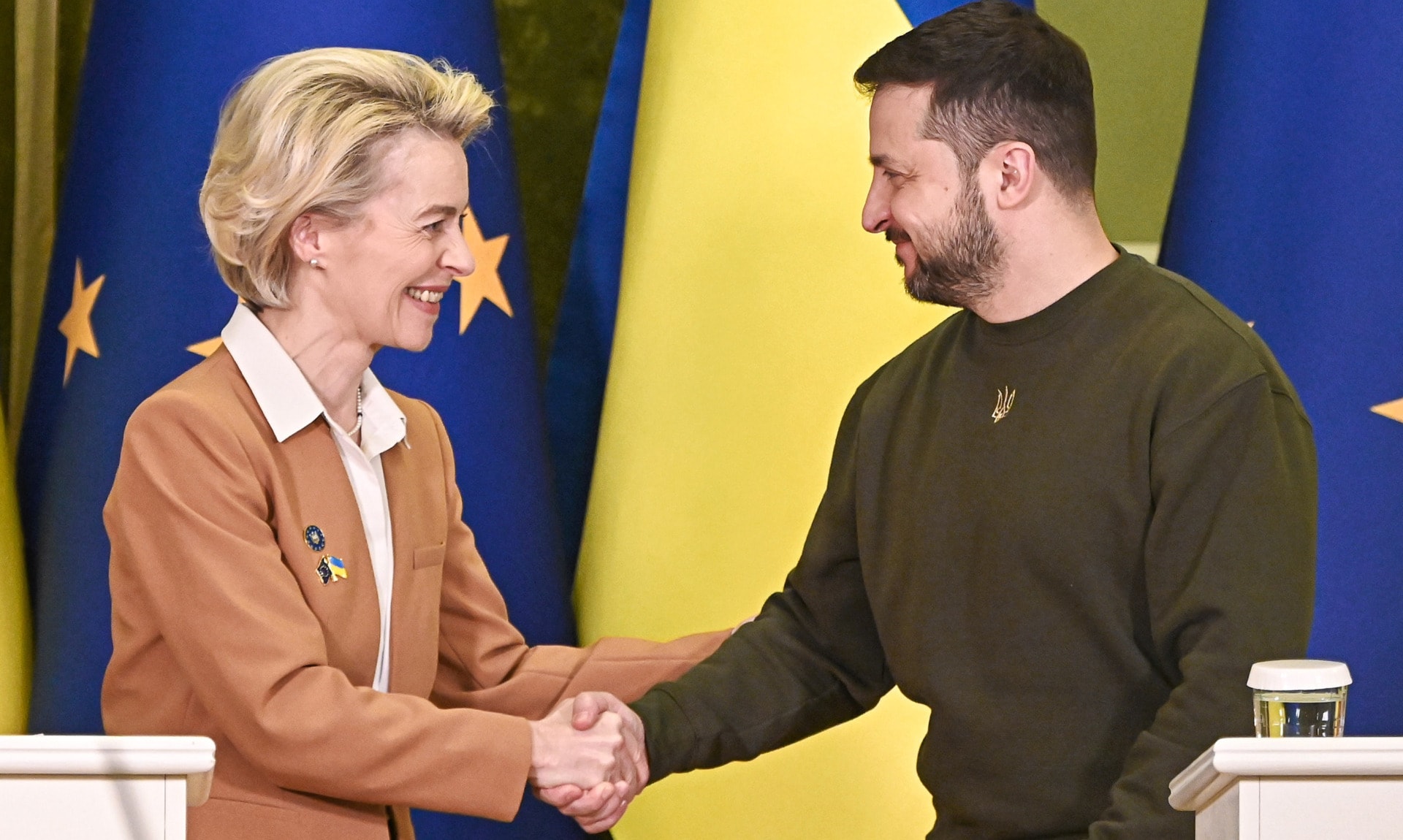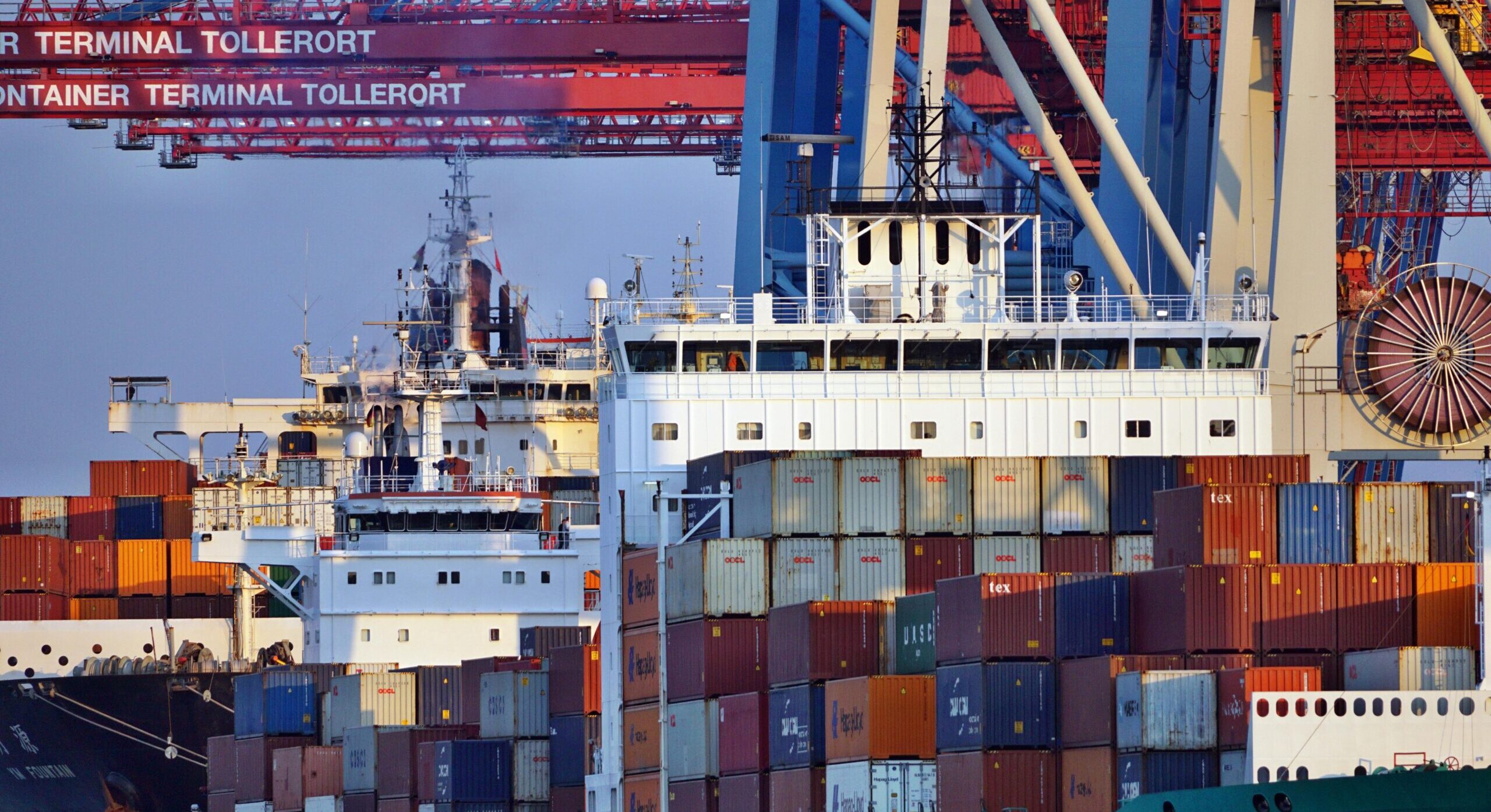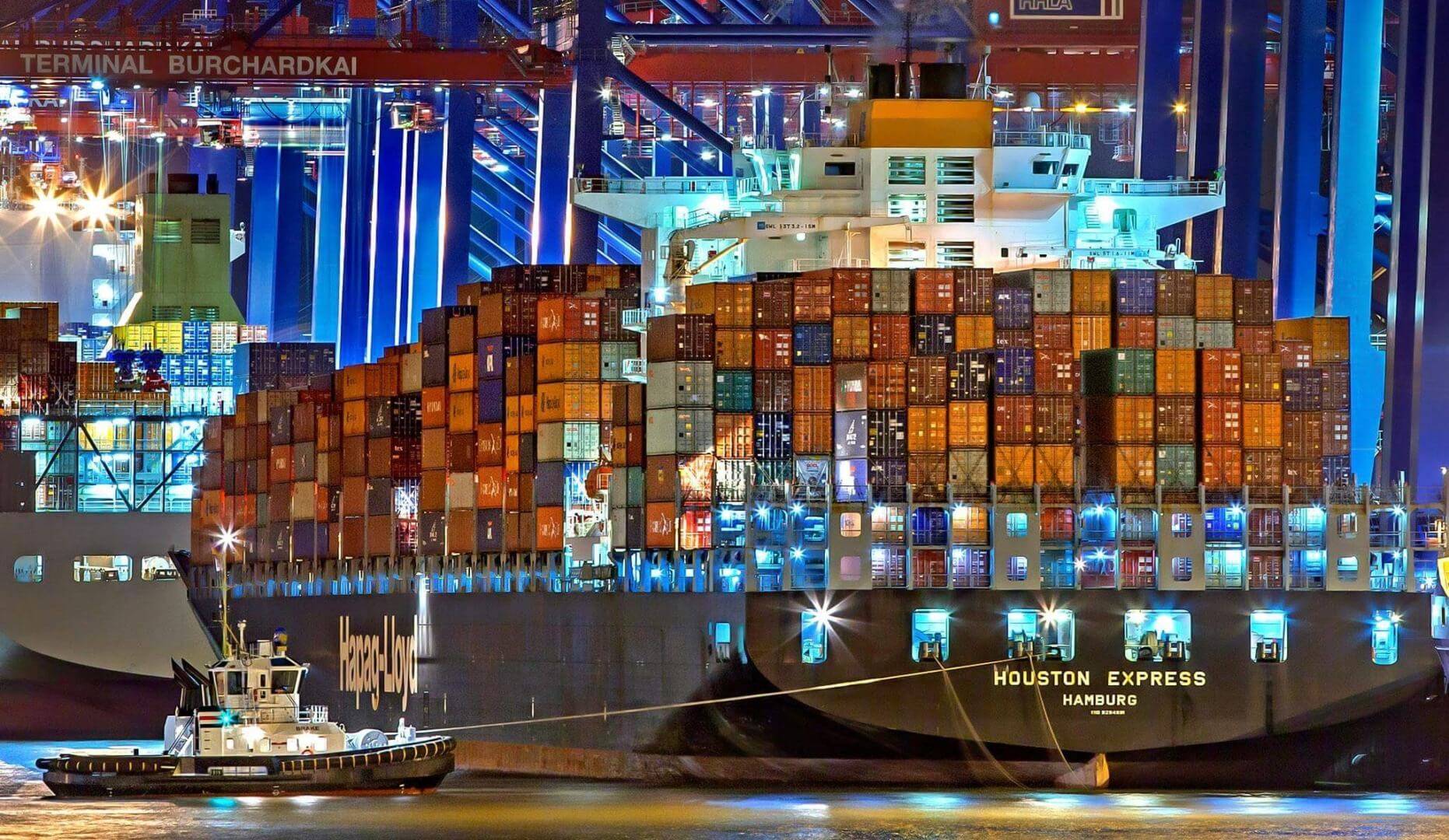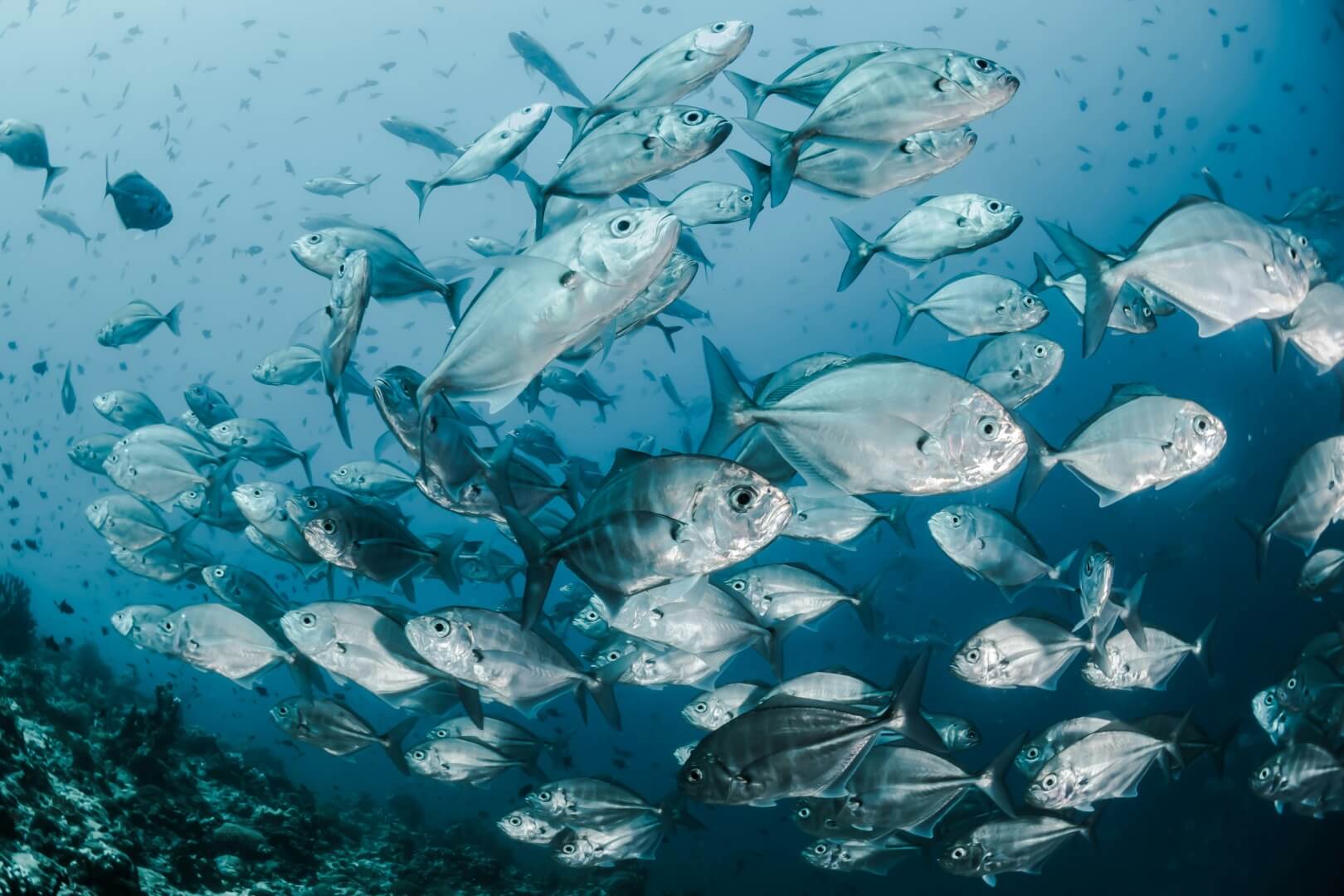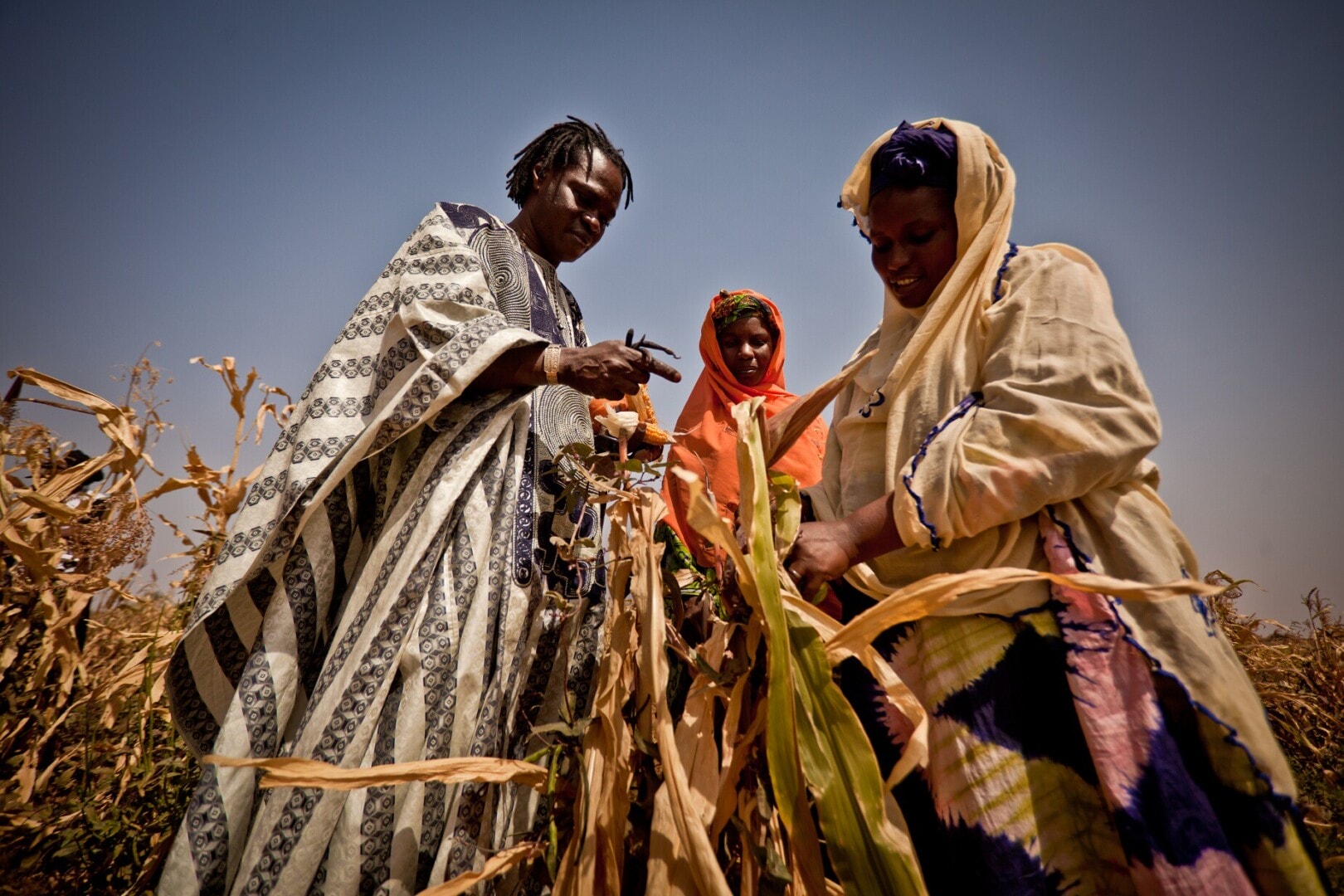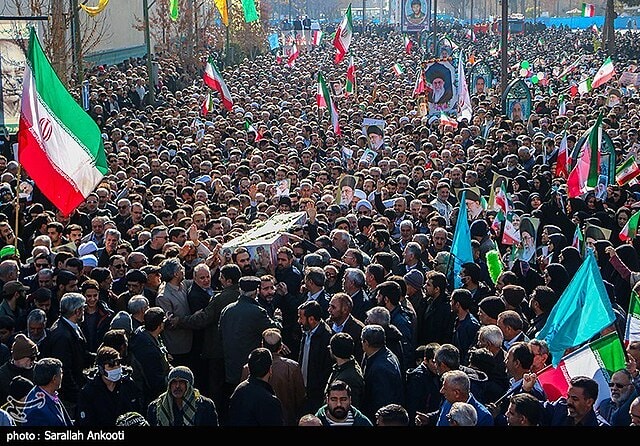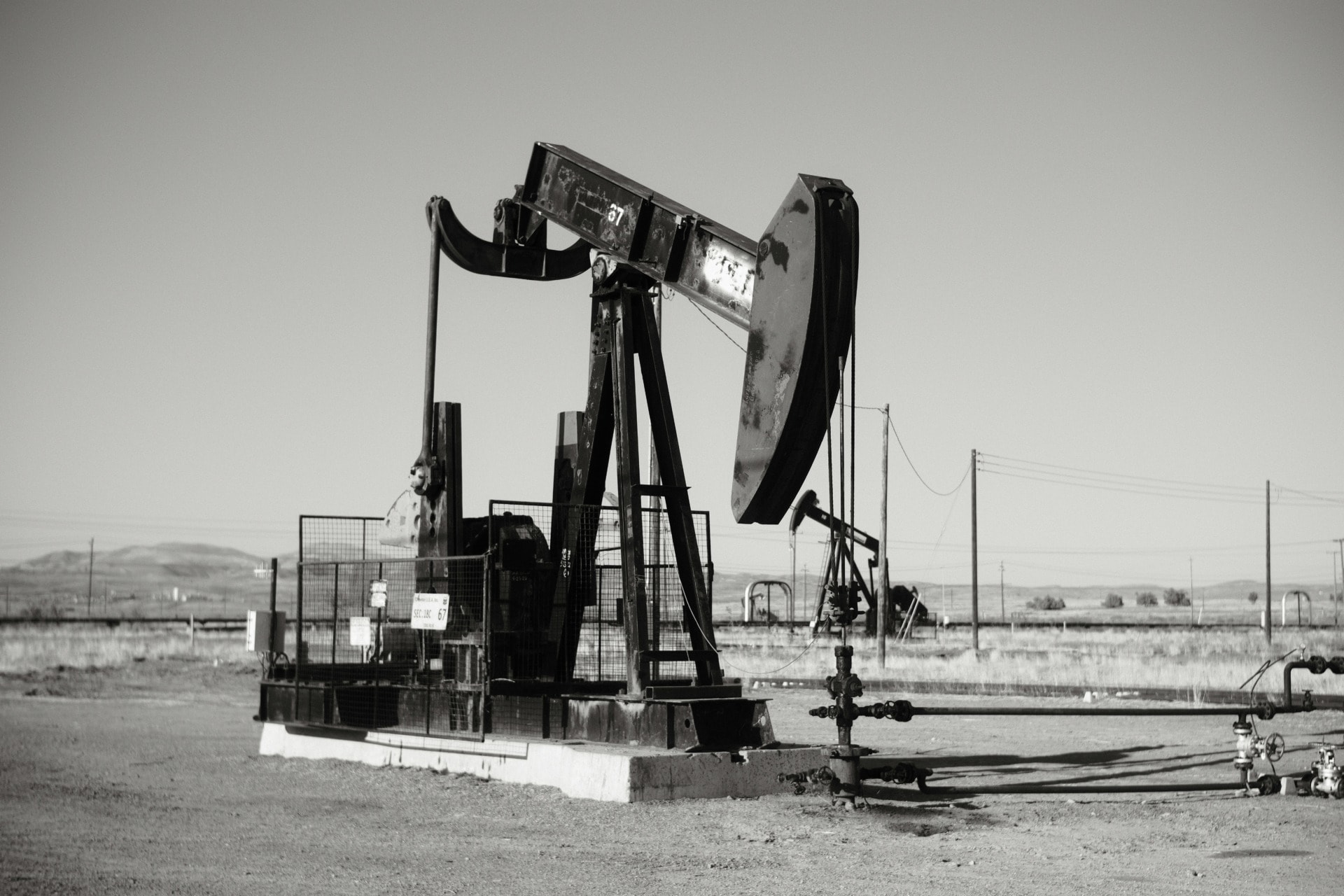Sanctions have proven not to work. What Ukraine now needs is more arms to resist the new Russian assault on its eastern frontier in the Donbas.
This said, diplomacy is not dead as shown by Austrian Chancellor Karl Nehammer’s visit yesterday to Moscow. He is the first EU leader to visit the Russian president in Moscow since the start of the war and he reminded Putin that those responsible for the atrocities uncovered in Bucha and elsewhere in Ukraine will be held responsible, that trials for war crimes will be undertaken in all the appropriate instances and that sanctions against Russia will continue and even be scaled up as long as people are dying in Ukraine:
His was the voice of justice, and justice should be meted out to those responsible, no question. But on a practical level, there is an urgent need to make Putin understand that his war is leading him nowhere and that a successful outcome is impossible. And that need is becoming all the more urgent that the war is now hurting everyone across this planet, not just Russia and Ukraine.
Ukraine war and sanctions against Russia cause massive supply chain bottlenecks hurting the global economy – and the next phase will be a global food crisis warns WTO
EU foreign ministers just met in Luxembourg to discuss the next steps, more sanctions including an oil embargo, not an easy decision. Ireland pushed for it, others pushed back. They also discussed a proposal by the EU’s top diplomat Josep Borrell to earmark another €500 million ($544 million) for the delivery of weapons and other military equipment to Ukraine – and on this point, an agreement was much easier:
Sanctions are increasingly problematic. We now know that without doubt, Putin has never made so much money off his oil and gas exports since the war started, an extra $100 billion – more than enough to finance his war needs.
Moreover, sanctions are beginning to seriously hurt the West.
Disruptions in supply chains as a result of the war in Ukraine and the EU’s sanctions against Russia have already caused shipping delays, port congestion and shortages and even production halts for numerous European companies. For example, 477 bulk ships are reportedly waiting to sail from China’s eastern ports, Maersk says it’s experiencing an “accumulation of delays on our services” — driven chiefly by port terminal congestion.
In short, international trade is a mess. A mess amply documented by the World Trade Organization (WTO) statistics out today depicting the drag of supply bottlenecks on the global economy.
The WTO Secretariat issued a report today, April 11, that, looking beyond what they rightly called “the humanitarian crisis of immense proportions” caused by the war in Ukraine, analyzed the “severe blow” dealt to the global economy, in particular the implications for global trade and development.
Rich and poor countries alike are hit. And as they noted in their report, “Poorer countries are at high risk from the war since they tend to spend a larger fraction of their incomes on food compared to richer countries,” it continues. “This could impact political stability.”
Using a global economic simulation model, the Secretariat projects that the crisis could lower global GDP growth by 0.7-1.3 percentage points, bringing growth to somewhere between 3.1 percent and 3.7 percent for 2022. The model also projects that global trade growth this year could be cut almost in half from the 4.7 percent the WTO forecasted last October to between 2.4 percent and 3 percent.
Over the long run, the war is likely to have much worse impacts than the short-term ones described above. The WTO experts ran several types of scenarios based on different assumptions, but one of the scariest ones is the following, unfortunately presenting a very likely scenario if the war prolongs itself, causing a loss of 5% in the global economy (for a detailed explanation, see page 22 of the report):

Aside from the well-known key role Ukraine and Russia play in the supply of fuels and wheat, they are also, noted WTO experts, key providers of inputs into industrial value chains. Russia is one of the main suppliers globally of palladium and rhodium, key inputs in the production of catalytic converters for automobiles, supplying 26 percent of the global import demand for palladium in 2019. Semiconductor production depends to a substantial extent on neon supplied by Ukraine.
As to the global economic impact of the war, WTO experts have no doubts: It will be – and already is – Europe: Since it’s “the main destination for both Russian and Ukrainian exports, [it] is likely to experience the brunt of the economic impact”.
So it should come as no surprise that supply bottlenecks affect particularly automotive manufacturers and their suppliers, notably in Germany and the UK, leading to inevitable price rises for anyone who purchases a new car. Since this is an essential consumption goods industry, expect inflation to spread across the economy, a coming headache for the European Central Bank.
So, just as WTO warned today, expect the next phase of economic consequences of the war in Ukraine to be a global food crisis – that could lead to expanded political instability and upheaval in fragile economies, as recently exemplified by Sri Lanka caught in the dilemma: Feed the people or declare default.
We already warned of a global food crisis in an article published last month and it bears repeating here: Ukraine and Russia together are the world’s biggest wheat exporters, and Ukraine agricultural production will be necessarily impacted by the war – and that means there will be a gap in production of up to 30% of total wheat exports.
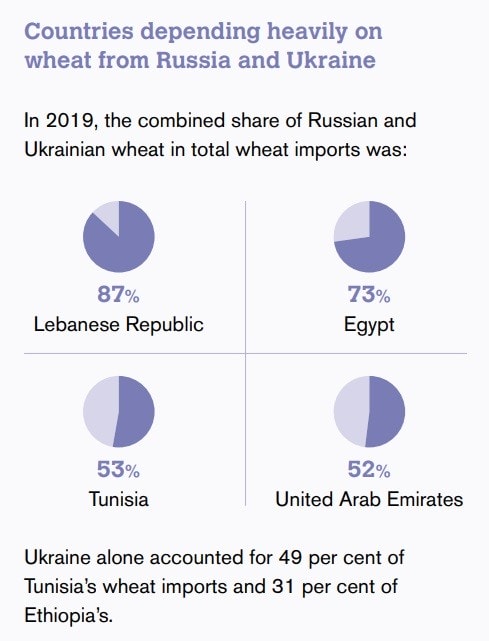
Now that the next phase in the Ukraine war is expected to be circumscribed to the Donbas, the rest of Ukraine may be able to plant for the new season but export roads will necessarily be difficult as the Azov sea is the scene of war and even Odessa, Ukraine’s main outlet on the Black Sea, is blocked by Russian bombing.
Phase II in the war: Move away from sanctions and focus on arming Ukraine with more weapons and military equipment
Ukraine’s allies in Europe are looking beyond diplomacy to the next obvious step: the recourse to arms. This is something that, inter alia, Poland is strongly pushing for, arguing that this is the best way to push Putin into accepting a cease-fire and start negotiating for peace.
The idea is to accelerate the arming of Ukrainian troops. Germany and Luxembourg, the European countries that so far had been somewhat averse to arming Ukraine have changed their mind and are also calling for more weapons.
Ukrainian President Zelensky said yesterday his country needs air-defense systems, planes, tanks, artillery systems and munitions. Today he insists that sanctions are needed as much as ever, especially an oil embargo, and that Russia will use chemical weapons in Mariupol.
One can understand and share his concern – but alas, sanctions do not work, they are always subject to leakage: Russia will always find buyers for its oil exports, starting with China but also other countries in Asia and elsewhere. A watertight oil embargo is impossible.
It’s high time to wake up to the reality of the situation – sanctions don’t work – and respond to Ukraine’s demands for more weapons.
Editor’s Note: The opinions expressed here by Impakter.com columnists are their own, not those of Impakter.com. — In the Featured Photo: Cover of the WTO Report “The Crisis in Ukraine: Implications of the war for global trade and development”, issued April 11 (screenshot, detail)




